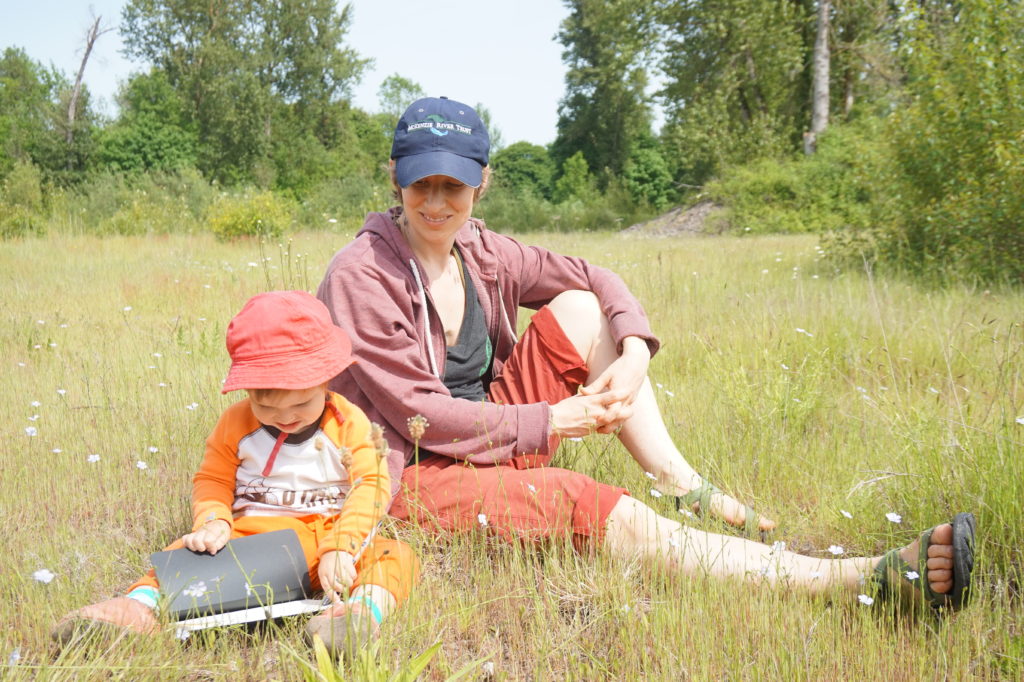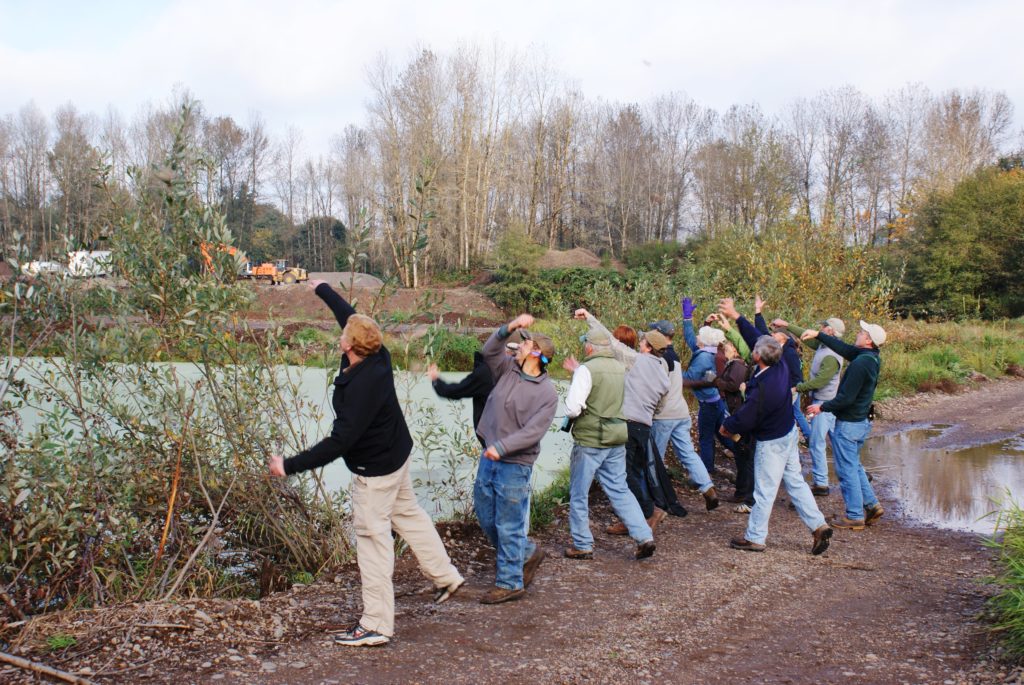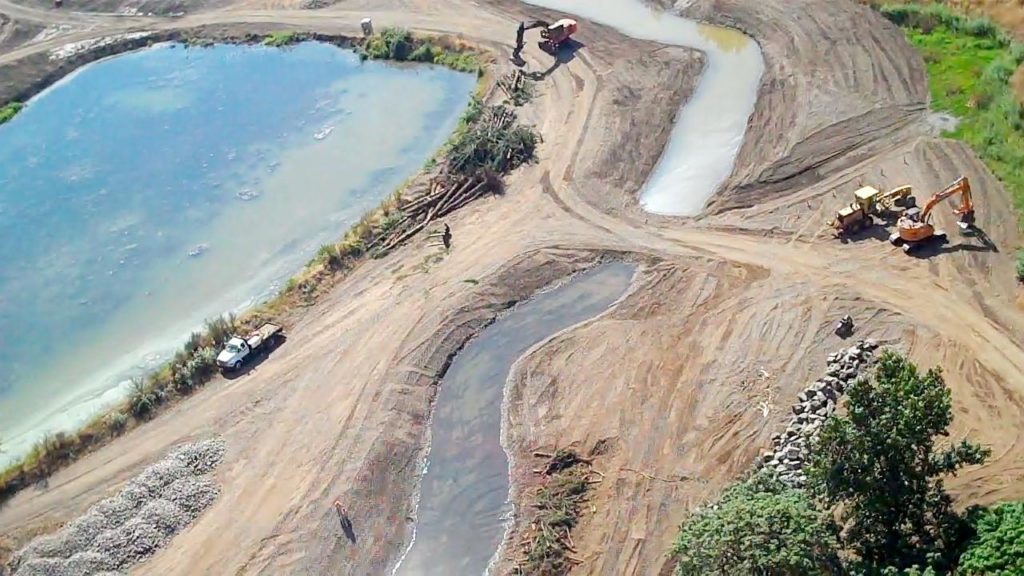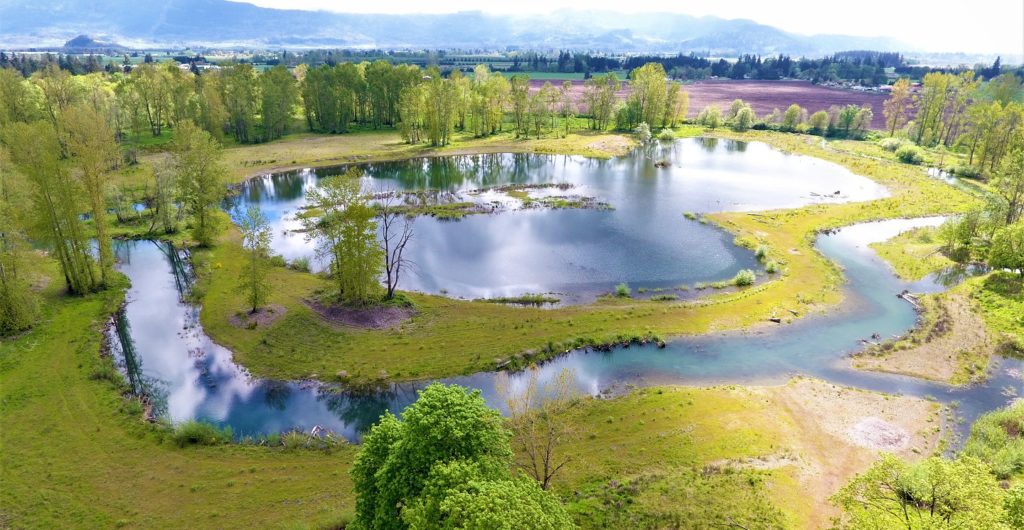By Liz Lawrence
This article is about the Coburg Aggregate Reclamation Project or CARP, purchased by the McKenzie River Trust in 2010. To learn more about CARP, visit our property profile.

Being a mother, I see things differently now. What was a restoration project is now a destination. What was a pond is now a playground. Since my son entered the “wobbler” phase, the water’s edge is now a mirror. He walks up to it and squats to look down into the eyes of his curious reflection. Beside his feet, blades of grass grow up through the gravel and stand at attention, like sentries.

In parenting books, I learn that being a mother is all about rupture and repair. The toy pulled away too quickly. My anger and exhaustion too close to the surface. All a normal response to a wobbler.
Yet what’s next is where the meaning happens. I can apologize, and take responsibility for what my impact was. I’m sorry. I got really frustrated at you just now. I should have taken a breath, but instead I yelled. I’ll do things differently next time. And I love you.
We say this to the land too, when we restore it. We love you. We love what you offer us in any state: as a gravel pit, or as a pond resplendent with red winged blackbirds, plovers, eagles, and great blue herons. With fish and dragonflies and frogs that chirp-plunk into the shallow channel as we walk by.

Fast forward. I am elderly. A young person, perhaps my son’s son, asks about this place. What happened here?
A group of us, we noticed something that was broken and in need of repair. We invited the river to come back, the way a river does. We gave it a hand with huge machines, as big as the ones that had turned it into gravel pits. I was there, in those weeks after the giant trucks moved thousands of tons of rock, their beeps echoing past the houses in the neighborhoods behind the ponds. The land was a moonscape, a wasteland: flat, rocky, not a blade of grass in sight. At that moment, it was hard to believe that what we had done was love. But life returned. We planted willows and grasses. Ducks and geese visited, then they stayed. A few years blinked by, and the rocky shore was so green, the ponds so full of life, could you even tell this was once a gravel mine? One day I returned for a visit, and I had changed, too.
That rupture, repaired. In the land, in my son, and in myself.

